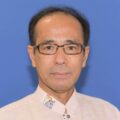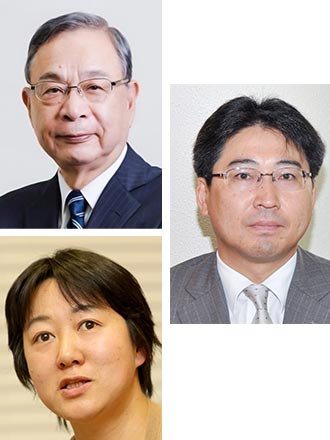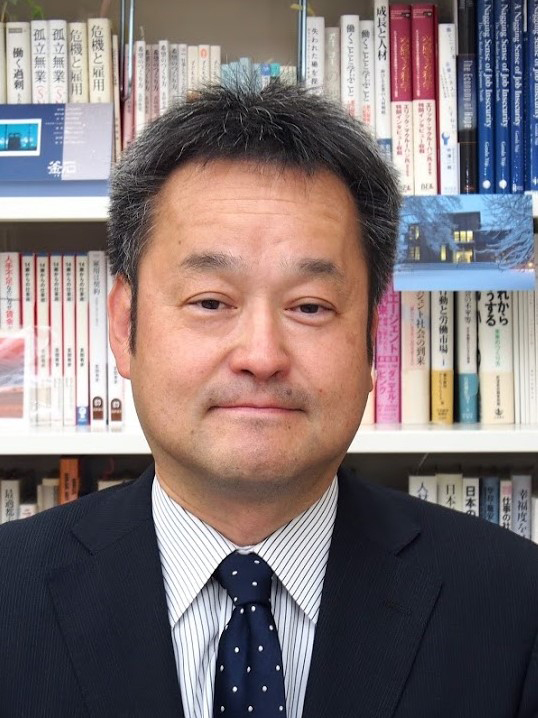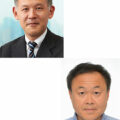Dialogue on the Gender Gap Index: Reasons why Japan is currently 121st in the world ― the growing popularity of feminism and the unchangeability of journalism
Hayashi Kaori (Professor, University of Tokyo) and Kojima Keiko (Essayist)
Goodbye to “membership system” feminism
― In 2017, the two of you created a group called MeDi, the Media and Diversity Forum, and since then, you have been involved in a wide range of activities, including holding symposiums and publishing.
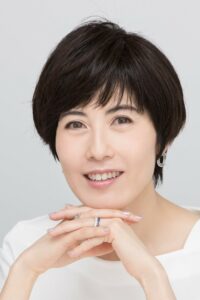
Kojima Keiko, Essayist
Kojima Keiko: To date, media criticism by townspeople has often been considered unimportant. Women’s voices rarely draw attention. In discussing the whole concept of the media, both academic viewpoints and the actual feelings of the people working in the media are important. However, there are not very many points of contact.
Accordingly, MeDi created opportunities for discussion. We feel this has resulted in a greater number of people being interested in issues that surround the media.
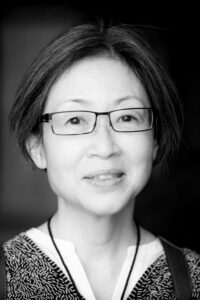
Prof. Hayashi Kaori
Hayashi Kaori: I have been investigating and discussing journalism and media as a researcher. But my results are shared only among academic research groups and my findings have been largely ignored when I present them externally.
However, thanks to MeDi, we are able to communicate with people outside academia with social media, and young students, both men and women, have started to attend MeDi’s symposiums. Previously, attendants had only been gray-haired women, including myself. I feel there has been a generational transition in our audience who show interest in themes such as gender equity and feminism.
There has been much coverage by internet media outlets, too, and I am glad that we can read the news immediately after the event with photographs on the internet.
Kojima: Attendees have included LGBTQ and other people who are sex or gender minorities and members of the media.
Looking at feminism, as discussions began on the internet and in other places, a movement began to surface of people who believed that only people recognized by these minorities are able to discuss feminism or that people who adapted to male-dominated organizations were not qualified to discuss feminism. It is easy for situations such as this “membership system,” in which a person is unable to call themselves a feminist unless it is approved by another person, to occur.
No one benefits from these situations. Even if a person has only elementary knowledge, when they feel that something is wrong with an existing framework and wish to achieve gender equality, a small feminist is born inside them. Everyone can discuss feminism in the first person.
If the gates are not thrown open, it may not be possible for many people in many parts of society, including men, to achieve gender equality.
Hayashi: It appears that men feel they would be “scolded” by feminist professors (laugh) if they were invited to one of the events we organize. I once was told by an invited panelist, “I shall sit in the defendant’s seat” (laugh). I was hurt by comments like this every time.
There have been times when feminism was centered around the advocacy of women’s rights, but the original goal should have been the concept of opening society to everyone regardless of gender or ethnicity.
Impertinence, intrusiveness, hysteria
Kojima: When a woman expresses a dissenting view or voices an opinion, a man feels that he is being scolded or that she is hysterical, and there is no half-way in between. The fear men have of independent-minded women is probably associated with the image of the defendant’s dock.
Tajima Yoko (formerly a Hosei University professor) discussed feminism on television in the 1990s. At that time she was treated as a pathetic character on television. Ueno Chizuko, a professor emeritus at the University of Tokyo, was also falsely seen as an intimidating scholar. The media generated a nonconformist image of women of principle and it has been reinforcing this image.
When a woman voices an opinion in the media, the perspective of a mother, a housewife or a woman is desired. This shows producers’ unconscious bias toward the belief that a woman’s value is being a woman. At the same time, it is intentional suppression. Because of this, women voicing opinions outside this scope are considered to be impertinent, intrusive or hysterical. Watching this, other women are afraid of voicing or having opinions.
The joshi-ana young female TV announcer is evidence that the industry visualizes the role of women on television as being that they should be cute workplace flowers, and impertinent women are disliked. This also imprints the status quo on women so they are not frustrated by the gender discrimination in the Japanese society, which has a large gender gap.
Hayashi: But the situation is changing little by little, albeit slowly. Classes on gender and sexuality have become popular at the University of Tokyo.
Kojima: They are. Sometimes I am a visiting lecturer at universities, and the teachers of all of those universities say that classes on gender are popular. University students may feel that gender issues are a hot topic and that they should study them. This does not mean that no people discriminate based on gender, it is a good sign that it is now a topic of great interest.
Tajima Yoko who I mentioned earlier is being reevaluated. People’s views have changed, and they now believe that Tajima was not pathetic; that television ridiculed Tajima and its viewers.
Moreover, Matsunaka Gon (president of the NPO Good Aging Yells), an LGBT activist who spoke at our symposium, immediately reproached Fuji Television for its revival of Homoda Homoo, a character which was performed by a famous Japanese comedian making insulting fun of male homosexuals that was popular thirty years ago, and elicited an apology from the broadcaster.
He did not rally against the broadcaster but requested, through dialogue, that awareness be elevated to match the times.
We still come across anachronistic discriminatory expressions on television and the internet. The support the movement protesting the revival of Homoda Homoo gained was revolutionary. Had it been conducted in the 2000s, I think that that level of support would have been impossible.
Hayashi: In those days, LGBT issues were rarely talked about and women’s workstyles were not considered. Compared to then, I have hope about the situation today, although matters are moving very slowly. Some young women now openly declare that they are feminists.
Trends changed in 2018
Kojima: Regrettably, the response to the #MeToo movement that began on social media in 2017 and spread from Hollywood to the whole world was lackluster in Japan compared to other countries, including South Korea.
However, in the fall of 2017, Ito Shiori, a freelance journalist, published Black Box in which she accused a journalist, Yamaguchi Noriyuki, of raping her, which prompted celebrities to start talking on the internet about their having been victims of sexual harassment and power harassment.
Ha-chu, a popular blogger, revealed that she was a victim of sexual harassment and power harassment at Dentsu, a leading advertisement agency. KaoRi, who was a model for photographer Araki Nobuyoshi, came forward to confess that she has been a victim of sexual harassment.
The following year, it was revealed that the then-Vice Minister of Finance had sexually harassed a female television reporter. The reporter revealed information about the incident in a weekly magazine out of fear of being met by silence within the company. This made Japan aware that, in order to work, women in the media must submit to gender discrimination and sexual abuse. With this, women working in the media industry who in order to work had been forced to submit to sexual harassment united, beyond organizational boundaries, and demanded that their male supervisors, who had been reluctant, squarely tackle the issue and make them news.
Furthermore, after a vicious tackle by a Nihon University American football team member, a number of power harassment cases were revealed in the sports community and in companies. It started to be commonly accepted and the media began reporting about irrational interpersonal relationships that had been accepted as normal at workplaces, schools and sometimes at home as being harassment.
In retrospect, I feel that 2018 was a year of great change. People began objecting about unreasonable customary practices, and the tendency of society to respect human rights and listen to the voices of minorities that had been ignored was improved.
Hayashi: I agree. Building on this positive momentum in 2018, I hope to achieve a society that truly embraces diversity in which every member of society can pursue their goals, enhance their abilities and potential. This means also that victims of sexual harassment and patriarchal oppression receive proper care. The public’s awareness of the importance of inclusiveness, meaning recognizing and respecting differences among each other, is still low. In an inclusive society, people work together based on horizontal collaboration, and not on the superior-inferior, hierarchical relationship.
Impact of the Abe administration’s promotion of women’s active participation in society
Kojima: On the other hand, my concern is that there will be divisions among people with the same goals but with different paths and degrees of maturity. Together with the increase of the number of people communicating through social media, etc. about their hopes for the achievement of gender equality and the creation of a society that emphasizes diversity and social inclusion, progressive movements started on the internet to “cancel” those who are considered to have wrong methods or insufficient education. This has been propelled by people who may be too earnest in their desire to have a wider perspective.
I am worried that people who should essentially be promoting solidarity with each other may gradually lose their ability to do so because of differences in opinions about what true feminists are and offensive tweets posted by anti-feminists spreading misogynistic ideas.
Hayashi: But this can be seen as the popularization of feminism.
I feel that bashing towards women who speak up or hate speech about women have been worsening. On the other hand, I can now tell others that I am a feminist. I can also suggest to a wider public to think about gender equality in society. A while ago, if I said things like that, people’s reactions were cold and negative.
I think that such popularization of feminist discourse in Japan may be considered as a result of the Abe administration’s policy, which declared openly that it will promote the participation of women in all aspects of society. I am not an advocate of the Abe Administration’s political ideas and policies, but Abe, as Prime Minister, publicly announced that gender is an important social issue. He was thought to be a conservative politician, so I think that the impact of his policy was inversely large.
Kojima: Women were among the first to suffer economically and socially from the COVID-19 pandemic. In February 2020, United Nations Secretary-General António Guterres stated that gender equality is the prerequisite for a better world, and that he was a proud feminist. Joe Biden, the President of the United States, explicitly said in his victory speech following the United States Presidential Election that he had a mandate to achieve racial justice through the elimination of discrimination and the valuing of diversity.
I think that statements like these made by eminent male leaders have a great impact.
The leadership of female heads of states
― The reputations of female leaders, including Angela Merkel of Germany, Tsai Ing-wen of Taiwan and Jacinda Ardern of New Zealand, have grown through their actions during the COVID-19 pandemic. If there is feminine leadership, what is it?
Hayashi: I do not know if there is a connection between female leadership and responses to COVID-19. It is important for heads of states to have good communications with the public during crises, so these skills may have been reflected in their actions to address the pandemic. However, I do not know if being a woman is a determinant factor in this matter. At any rate, I do think it a good sign that female leadership has been positively accepted.
Kojima: I also think that we should not make hasty decisions about any correlative relationships between gender and the capabilities of politicians. Good infection control can reflect various factors, such as population size, lifestyles, geographical conditions and the conditions of medical systems, beyond the capabilities of any one leader.
As a practical matter, however, for a woman to survive in the male-dominated realm of politics, I think that it is necessary for women to improve their own unique skills. Women cannot win on a macho male stage. Women must either use the influence of macho me to become an honorable man or compete using their own talents on a different stage. In other words, women need to show their presence by differentiating their abilities from those of others. As a result, when a problem cannot be handled by male leaders, female leaders who are differentiating themselves are able to exercise their abilities.
Moreover, I think that, in a pandemic, a community giving diverse people the opportunity to become leaders without eliminating certain people because of their gender is overwhelmingly better than a society that does not select the people able to exert excellent leadership in situations where careful communications are necessary regarding complicated issues to be leaders because of their gender.
Rather than selecting leaders from the male half of the nation’s population, who all have the same capabilities, selecting people with diverse capabilities from twice that number of people increases the percent chance that people with the necessary capabilities are able to take part in decision making and excellently deal with unknown crises faced by society. Selecting leaders only from a group of people with homogeneous capabilities causes the nation to suffer devastating damage when a crisis occurs that cannot be dealt with by people with that set of capabilities.
Care and attentive hearing
Hayashi: It has been argued globally that political polarization is taking place. Polarization is perceived also in terms of gender issues, between groups that value diversity and groups that guard traditional gender roles and the division of labor.
Political commentators who often appear in the media, who are often men, are aware of the agenda they want to advocate. In contrast, ordinary people, who face daily problems and are dissatisfied and depressed for one reason or another, are rarely given the opportunity to clearly express their dissatisfaction. Women, in particular, tend to remain silent because they are taken negatively if they “talk back.” Hearing the voices of these ordinary people and connecting them to larger social/political issues is the role and challenge of journalism.
In that sense, I advocate the “ethics of care.” By “care” I do not mean caregiving. One cannot live only by asserting one’s individual rights. People are placed in interdependent relationships as soon as they are born, and this is the starting point of the philosophy of “ethics of care.” I think that journalism recognizing this sort of mutual assistive human relationship is necessary.
Traditionally journalism expresses concepts such as freedom of speech, or the collecting of the voices of people who have something to say. However, I think the primary role of journalism is focusing on the unheard voices of the silenced part of the population who are still unsure what to say or who to speak with. This is the “ethics of care” in journalism.
Kojima: For that reason, it is important to have an attitude of attentive care. Up until now, there have not been very many opportunities for those faced with what is called living challenges. Thanks to social media, previously unheard voices can be heard more easily.
However, attentive listening is not saying yes to everything that people say. For example, listening kindly to people who discriminate against others is giving silent consent to the discrimination. Although it is important to analyze the motives and background behind discrimination, we should not let discrimination continue unchecked. It is essential that we create a society in which the victims of violence and the people who passively stand aside out of fear feel safe to talk about their feelings. The things that media outlets broadcast and who they listen to affect people’s psychological safety in society. If diverse lifestyles are expressed in the media and the voiceless are heard, more people feel that they are kindly watched over and taken care of. I think this is one of the roles of the media
Indifference to identity politics
Hayashi: Looking at the media in Japan, print newspapers and terrestrial radio/television stations still occupy dominant positions. This is a unique phenomenon in Japan, very different from the rest of the world.
For example, although some news about the Trump administration is reported in Japan, the movements of identity politics (movements seeking social approval from people who form exclusive political alliances based on particular identities, for example human characteristics such as gender) in the United States are not properly reported here. As have been seen in reports about the BLM movement in the United States, reporting about the seriousness of racial and gender issues is incomplete.
Moreover, there is often a negative attitude expressed in reports about diversity, which are often expressed in the form of “riots” caused by radical activists. They tend to focus on the negative sides of identity politics. The things that identity politics have achieved and the things that are happening in education and people’s everyday lives are not adequately reported.
Kojima: My family is living in Australia and, as Asian immigrants, we are a super minority. When the white supremacist movement was strong, we felt extremely insecure. However, the Australian government clearly announced that Australia values diversity and never permitted discriminatory speech, and we felt relieved. Although Australia still has deep-seated problems, such as the apologies and reconciliations that are necessary regarding its indigenous peoples, careful attention is being paid to ensure that minorities feel secure in a nation with significant immigration.
I hope that politicians, government officials and the media in Japan ensure that the designs, methods of operation and announcements of institutions do not make anyone, regardless of their position, feel insecure.
Hayashi: Germany, a country where I studied, admitted as many as one million refugees in the year 2015. The prevailing sense of urgency there could not be compared to Japan’s. A focus on overcoming the past, on how German society should deal with Nazism, has been a part of the nation’s education, culture, arts and journalism since the war. In recent years, far-right extremists have entered German parliament, but critical perspectives on the past, including on racist theories and the genocide of the European Jews remain the foundation of social thinking.
The Japanese media seem to follow the trends of the times, but somewhat superficially, and the reasons why respect for diversity is important for humans is not sufficiently conveyed by the media.
This is why sentiments in Japan toward the acceptance of diversity, including gender, are weak and why we cannot reach the consensus that this is a vital issue for Japanese society at large. Before we could realize it, Japan fell to an all-time low, 121st on the Gender Gap Index (GGI). Japanese media should feel that they are also responsible for this fall, as they still disseminate a distorted image of women.
Kojima: Looking at that data, there is almost no difference between men and women in Japan in education or health. Nevertheless, there are significant economic and political gaps between them. In this regard, other countries have overtaken Japan.
Although many women are highly educated and live healthy and civilized lives, it is not possible for them to be active in the fields of politics or economics because of their sex. No matter how we look at it, it is not their issue. It is a structural and cultural issue. This situation has not changed over time, and it is a problem.
Hayashi: I have been conducting research together with researchers from the United States, Israel, Argentina and Finland, and we interviewed a total of more than 500 people and asked about how they read news. In this project, I noticed that it was predominantly Japanese women who responded to our questions about political news in a negative way, such as by saying they let their husbands think about politics, that they did not read newspapers because their husbands take them with them to the office, or that they could not say anything about politics. Although respondents were chosen from a wide range of people in terms of age, profession and level of education, similar responses were heard across all groups. This phenomenon is rarely seen in other countries.
There still remains an approving atmosphere surrounding the patriarchal system in Japan. Newspaper articles and television programs are created for and by the people who approve such views. Unfortunately, Japanese society may deserve to be ranked only 121st.
Gender biased actions in academia and journalism
― What is your impression of the media, in particular, the so-called rondan journalism, including Chuokoron?
Hayashi: My image of rondan journalism is that they incorporate vested interests of the old boys’ network in Japanese society. I do not feel like reading these rondan magazines because I do not see how they support young entrepreneurs and women. Rondan has become an exclusive space for men. It rarely conveys interesting and inspiring messages to us women.
Kojima: The impression that I got was that the experts appearing in special features about COVID-19 were mostly men. For example, criticism was voiced because all twelve of the experts on Korona-go no sekai (The Post-COVID-19 World, Chikuma Shobo) were men. This was a typical gender biased action that amplified the opinions of male experts on important topics. I think that there may be a gap between reality and the world as seen by the people in the realms of academia and journalism. These people’s lack of awareness of their unconscious biases is a profound problem. It is a lack of perspective to question themselves.
I heard that the phrase “educate yourself” is often used by young people in the United States. They are hungrily acquiring knowledge to improve themselves, because they want to become aware of their antiquated values, unconscious biases and unacknowledged privileges.
It would be good if journals focused on academia and journalism were able to bring young people with intellectual appetites to think that if they read the journals, they would discover experts, expand their minds, learn more about themselves and reinvent themselves.
For many people, every day during the pandemic has been an opportunity for inner reflection and deepened learning. We are acutely aware of the impossibility of returning to the pre-COVID-19 world. It may be a good opportunity for the media to say to the public that hope and new perspectives are available on their platforms. All-male panels during the pandemic revealed gender inequality and told the world that we live in the past. Spaces for speech are also an intellectual resource of society. I hope that the media are able to function as a place for introducing the wide range of perspectives and theorists that society hopes to nurture in the future. I also hope that female experts, who have been neglected in the past, are proactively identified and given opportunities to speak.
Hayashi: There seem to be less opportunities for Japanese people to discuss politics and social issues. When asked, “Do you discuss news with someone after you read it?”, more than sixty percent of respondents said that they do not discuss the news with other people. This trend is peculiar to Japan. When asked why they do not, many respondents say that they do not have enough knowledge to discuss the news. There are not many people who say things like this in other countries. Japan has created an authoritative and exclusionary atmosphere around rondan that only male privileged intellectuals are accepted and allowed to speak.
But in fact, rondan should be a space for everyone. The media should welcome discussions of politics and society from all members of society. Media should send the public a message that talking about politics, or expressing one’s own political view is a good thing. This attitude should eventually help the business of the media as well.
Kojima: If the skills for holding constructive discussions and the importance of critical thinking are not taught sufficiently in schools, young people will have no other choice but to learn them through the media. I hope that the media also play a role in this.
Translated from “Taidan―Ninki hirogaru Feminizumu, kawarenai janarizumu (Dialogue on the Gender Gap Index: Reasons why Japan is currently 121st in the world ― the growing popularity of feminism and the unchangeability of journalism),” Chuokoron, December 2020, pp. 36-45. (Courtesy of Chuo Koron Shinsha) [March 2021]
Keywords
- Hayashi Kaori
- University of Tokyo Graduate School of Interdisciplinary Information Studies
- Kojima Keiko
- essayist
- MeDi
- Media and Diversity Forum
- feminism
- journalism
- media
- diversity
- LGBTQ
- women’s rights
- gender
- ethnicity
- #MeToo
- Matsunaka Gon
- Ito Shiori
- Black Box
- Korona-go no sekai
- female leadership
- ethics of care
- politics
- identity politics
- Gender Gap Index

